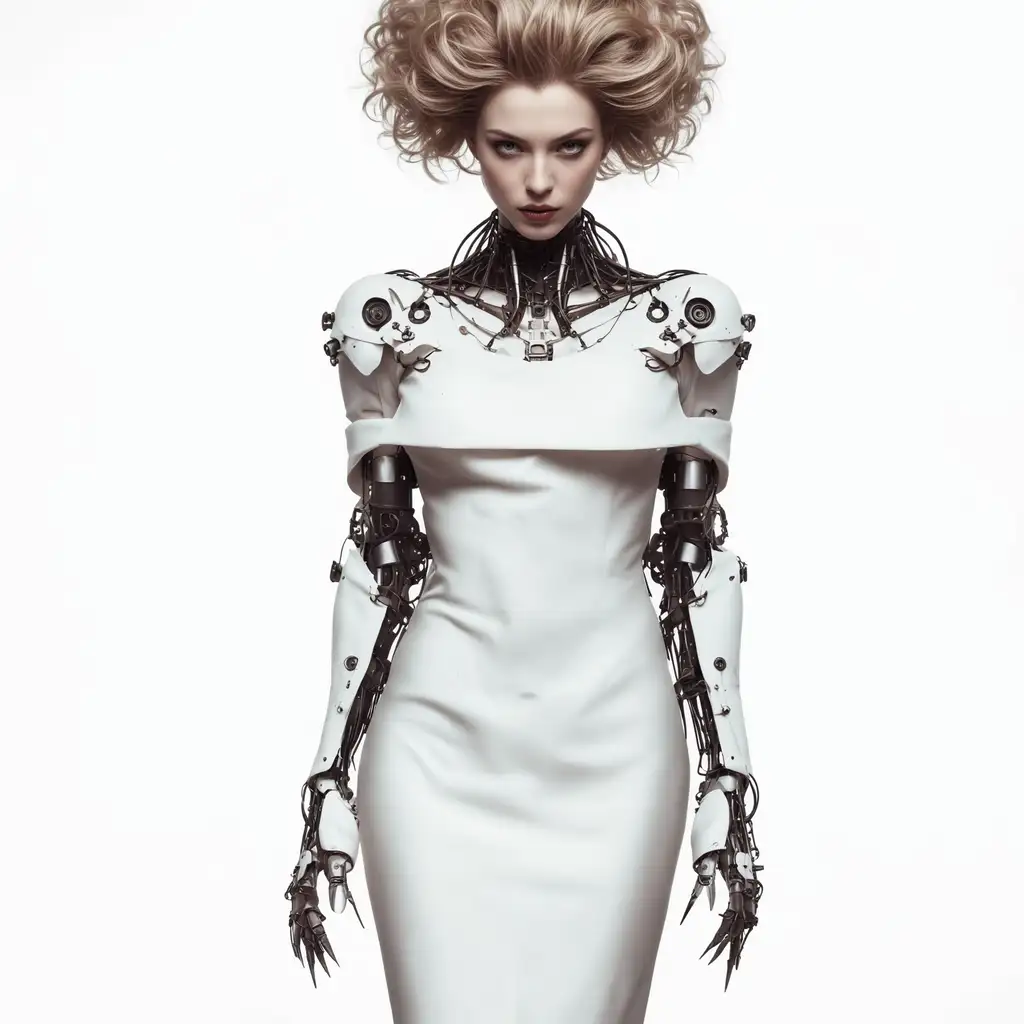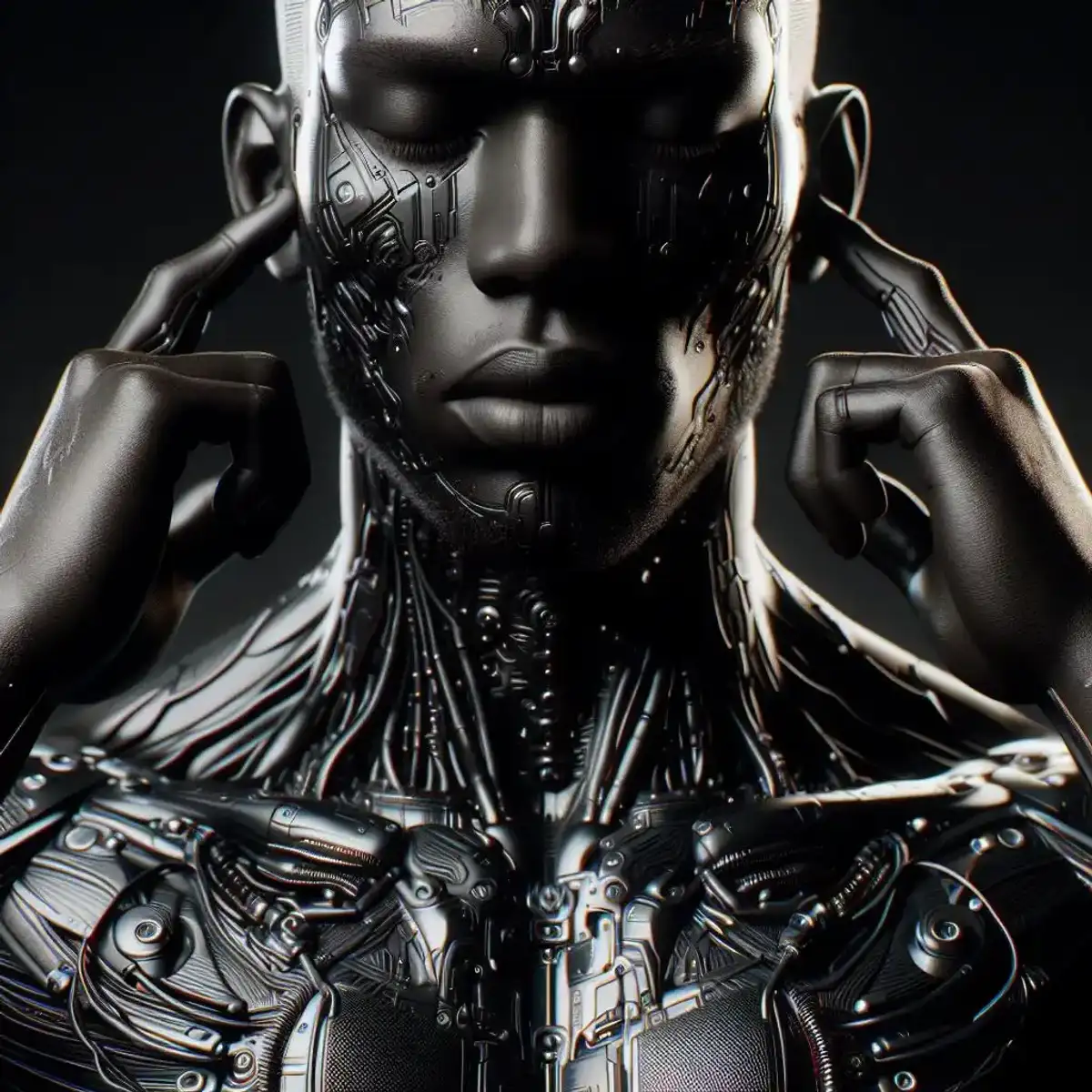Picture rain-slicked streets reflecting a kaleidoscope of neon signs, chrome-enhanced humans navigating maze-like urban canyons, and hackers diving deep into the digital sea of information. Welcome to the world of cyberpunk, where the future isn’t just a destination—it’s a state of mind.
Emmerson once said: “I cannot remember the books I’ve read any more than the meals I have eaten; even so, they have made me.” I don’t remember which was the first cyberpunk book I read, but clearly it had a big impact on me. It was the beginning of a rewarding, passionate love. But here’s the thing: cyberpunk isn’t just about cool gadgets and neon aesthetics—it’s a mirror reflecting our deepest hopes and fears about tomorrow.
From Punk to Prophetic: The Birth of a Genre
Cyberpunk burst onto the scene in the 1980s like a neon-lit supernova. While sci-fi was busy painting pristine futures with flying cars and perfect societies, cyberpunk kicked down the door and said, “Not so fast.” It showed us a future where technology hadn’t solved our problems—it had amplified them in ways we never imagined.
William Gibson, Bruce Sterling, and other pioneering authors weren’t just writing stories; they were prophets in leather jackets. They saw past the shiny veneer of technological progress and asked the hard questions: What happens when corporations have more power than governments? When we can modify our bodies at will? When the line between human and machine becomes a blurry smudge?
The Future That Came True
Here’s what blows my mind: so much of what cyberpunk predicted has already come true. Remember when the idea of carrying a powerful computer with AI in your pocket seemed like pure fiction? Or when virtual reality was just a wild dream? Cyberpunk called these shots decades ago.
But it’s not just the technology. Cyberpunk foresaw:
- The rise of mega-corporations wielding unprecedented power
- The intense integration of social media into our daily lives
- The emergence of cybercrime as a major global threat
- The growing divide between the tech-haves and have-nots
And perhaps most importantly, it predicted how we’d feel about all of this—simultaneously entranced and unsettled by our increasingly digital existence.
Beyond Blade Runner: Cyberpunk Today
Modern cyberpunk has evolved far beyond its origins. Today’s stories tackle everything from artificial intelligence ethics to the nature of consciousness itself. Works like “Altered Carbon” explore what happens when death becomes optional for the wealthy. “Ghost in the Shell” questions what it means to be human in a world where consciousness can be digitised.
The genre has also expanded beyond its traditional boundaries. Games like “Cyberpunk 2077” let us live out our digital rebel fantasies. Shows like “Black Mirror” bring cyberpunk themes into our present-day anxieties. Even fashion and music have embraced the cyberpunk aesthetic, with neon-lit streetwear and synthwave creating a whole new cultural vibe.
Why Cyberpunk Matters More Than Ever?
In our current reality, where tech billionaires launch rockets into space while inequality grows on Earth, cyberpunk’s messages feel more relevant than ever. It’s not just entertainment—it’s a toolkit for understanding our rapidly changing world.
The genre teaches us to be both excited and critical about technological progress. It reminds us that behind every shiny new gadget lies complex questions about privacy, autonomy, and human dignity. Most importantly, it shows us that the future isn’t set in stone—we have the power to shape it.
The Soul in the Machine
What truly sets cyberpunk apart is its humanity. Despite all the chrome and neon, the best cyberpunk stories are deeply human tales. They’re about rebels fighting against overwhelming odds, hackers searching for truth in a sea of lies, and ordinary people trying to maintain their humanity in an increasingly inhuman world.
This is why we keep coming back to cyberpunk. It’s not just about the aesthetic. It’s about seeing ourselves in these digital futures, recognising our own struggles and hopes reflected in chrome and code.
Join the Revolution
If you haven’t dived into cyberpunk yet, there’s never been a better time. Start with classics like “Neuromancer” or “Do Androids Dream of Electric Sheep?” Watch “Blade Runner” or “Ghost in the Shell.” Play “Deus Ex” or “Cyberpunk 2077.” Each entry point offers a unique perspective on this fascinating genre. I think you will also enjoy “The Birth of Cogenant”.
And while you’re exploring these neon-drenched futures, remember: cyberpunk isn’t just showing us what might be—it’s asking us what kind of future we want to build.
As for me? I’ll be here, diving deep into these digital dreams, always creating the next story that makes me question everything I thought I knew about technology, society, and how life feels in the post-human world.
Because in the end, that’s what cyberpunk is really about: finding the soul in the machine, the human in the digital, and the hope in the dystopia.
Want to explore more mind-bending futures? Check out my hard sci-fi novel “The Birth of Cogenant”, available at all major online bookstores. It’s an adventurous journey into consciousness, artificial intelligence, and how it feels to lose yourself to technology.


